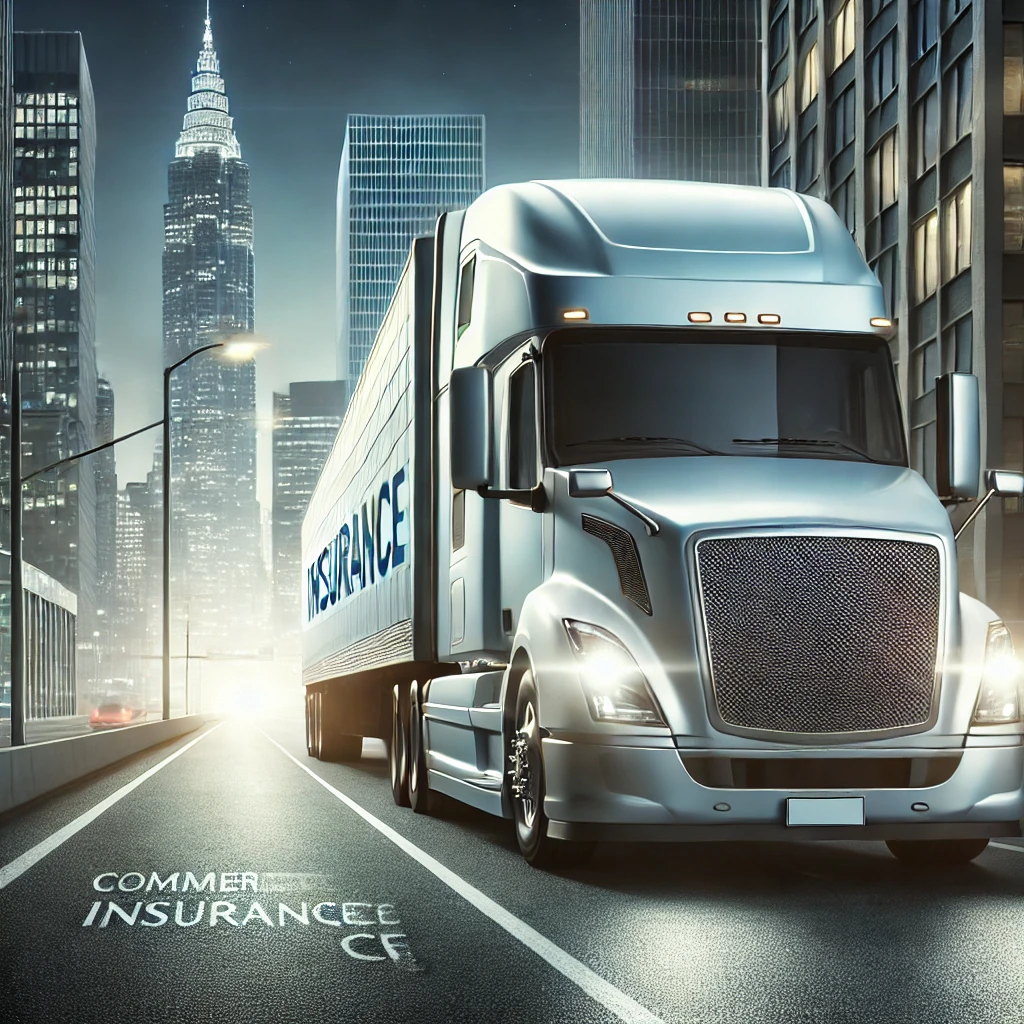Commercial truck insurance is a critical safeguard for businesses that depend on trucks to transport goods and services. This coverage not only protects the truck but also shields the business from financial setbacks resulting from accidents, theft, or liability claims. Without sufficient insurance, a single mishap could lead to substantial financial losses and potential legal complications.

Understanding Commercial Truck Insurance
Commercial truck insurance provides coverage specifically for the risks associated with business vehicles. Unlike standard auto insurance, it addresses the unique hazards that come with transporting goods over long distances or operating under various weather conditions. Comprehensive coverage helps protect your business from potential financial losses due to accidents, cargo damage, or other issues.
Finding the right insurance policy requires understanding the types of coverage available and determining which options best fit your business needs. A well-chosen policy ensures that your assets, employees, and customers are all protected.
Types of Coverage Available in Commercial Truck Insurance
Effective commercial truck insurance typically includes several coverage types, each designed to address specific risks:
- Primary Liability Insurance: Required by law, this coverage addresses injuries and property damage to others in an accident where your truck is at fault. It protects the business from high out-of-pocket expenses and ensures legal compliance.
- Physical Damage Coverage: Covers the truck itself from damages due to collisions, theft, or natural events. Given the high cost of trucks, physical damage insurance is crucial for maintaining financial stability.
- Motor Truck Cargo Insurance: Provides protection for the goods being transported. Cargo insurance is especially important if your business handles valuable or sensitive items, as it can mitigate risks associated with damaged or lost goods.
- Non-Trucking Liability Insurance: Covers accidents that occur when the truck is not in business use, providing an extra layer of security for drivers during personal time.
Additional Insurance Options to Consider
Beyond the core coverages, there are additional options to enhance protection for specific business needs:
- Trailer Interchange Insurance: Covers trailers owned by other companies that your business uses, protecting third-party assets under your control.
- General Liability Insurance: Extends coverage beyond vehicular incidents to include liabilities that occur on business premises, such as customer injuries or property damage.
- Bobtail Insurance: Provides coverage when trucks are operated without cargo, useful for businesses where trucks may travel empty between locations or jobs.
Why Commercial Truck Insurance is Important
Trucking businesses encounter daily risks, from road accidents to cargo theft. Commercial truck insurance offers a layer of protection, allowing businesses to recover from incidents more quickly:
1. Financial Security: Trucks are major investments, and insurance helps cover repair or replacement costs, minimizing financial strain.
2. Legal Compliance: Most states require liability insurance for commercial vehicles. Without it, businesses face fines, suspensions, and potential lawsuits, hindering operations.
3. Risk Management: Insurance mitigates the impact of various risks, such as severe weather, theft, or vandalism, enabling the business to continue operations with fewer disruptions.
Factors Influencing Commercial Truck Insurance Costs
The cost of commercial truck insurance varies based on several factors. Here’s a closer look at some primary cost drivers:
1. Type of Truck: Larger and specialized trucks often incur higher premiums due to the increased repair and replacement costs. Insurance providers assess the risk associated with each truck type to set premiums accordingly.
2. Mileage and Travel Locations: Long-haul trucks cost more to insure because they spend more time on the road, increasing accident risk. Trucks operating in high-crime areas may also have higher premiums.
3. Driver’s Record and Experience: Employing experienced drivers with clean records can reduce premiums. A driver’s history is often a key factor in determining insurance rates.
4. Business Safety Practices: Implementing driver safety programs and vehicle maintenance protocols can lead to discounts. Insurers reward businesses that prioritize safety and minimize accident risks.
Tips for Reducing Commercial Truck Insurance Costs
Businesses can take proactive steps to manage insurance expenses while maintaining adequate coverage:
1. Bundle Policies: Many insurance providers offer discounts when businesses combine policies, such as general liability with commercial truck insurance. This approach can simplify management and reduce costs.
2. Opt for Higher Deductibles: Choosing a higher deductible reduces premiums, though businesses should consider their ability to handle out-of-pocket expenses in case of an accident.
3. Install Safety Devices: Equipment like anti-theft devices and dashcams can lower risk and may qualify for discounts. Insurers often offer incentives to businesses that take active steps to reduce accident likelihood.

Debunking Common Myths about Commercial Truck Insurance
Several misconceptions exist about commercial truck insurance, and addressing these can help businesses make well-informed choices:
Myth 1: Higher Premiums Mean Better Coverage
More expensive policies don’t always provide better protection. Reviewing policy details ensures you’re paying for the necessary coverage and not for extras you may never use.
Myth 2: All Trucks Need the Same Insurance
Each truck may require different coverage based on its use. Tailoring policies for each vehicle type can prevent unnecessary expenses and ensure adequate protection.
Myth 3: Basic Liability Is Sufficient
While basic liability is required, it doesn’t cover all risks. Additional protections like cargo insurance and physical damage coverage provide a comprehensive safety net, especially for high-value operations.
How to Choose the Right Commercial Truck Insurance
Selecting the right policy involves several considerations. Here are key factors to help you make an informed choice:
1. Assess Your Needs: Consider the cargo, routes, and vehicles involved in your business. High-value cargo might require motor truck cargo insurance, while local delivery services may focus on liability and physical damage.
2. Compare Options: Different insurers offer varied packages, so comparing policies ensures you’re not missing out on important coverage or paying too much.
3. Seek Expert Advice: Consulting with insurance specialists can provide valuable insights, as they often recommend endorsements and adjustments tailored to your business’s unique operations.
Frequently Asked Questions about Commercial Truck Insurance
What does commercial truck insurance cover?
Typically, commercial truck insurance includes liability, physical damage, and cargo coverage. It can be customized to meet specific business needs. Learn more about coverage options here.
Is commercial truck insurance mandatory?
Yes, primary liability coverage is legally required for commercial truck operations. Failure to maintain coverage can result in fines and the suspension of business licenses.
What determines the cost of commercial truck insurance?
Premiums are based on truck type, distance traveled, and driver history. Contacting an agent for quotes provides a more accurate estimate. For more details, see this guide.
How can I reduce my insurance premiums?
Options for reducing premiums include bundling policies, implementing driver safety programs, and opting for higher deductibles. Explore more ways to save on premiums here.
What types of trucks require commercial insurance?
Vehicles used for business purposes, including box trucks, tankers, and delivery trucks, require commercial insurance. Each vehicle type may have different coverage needs depending on its role in the business.
